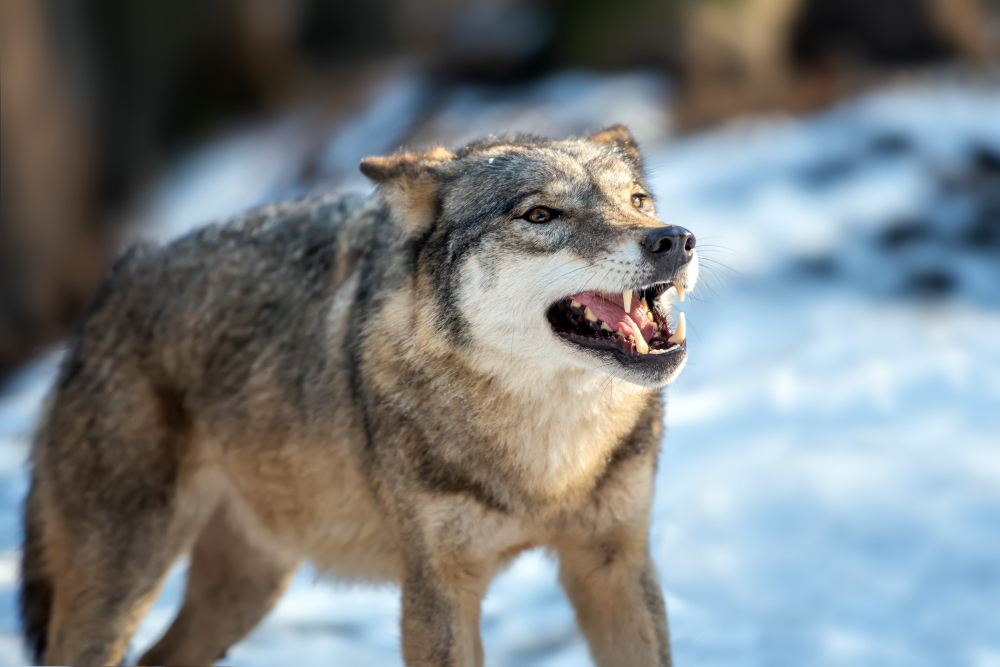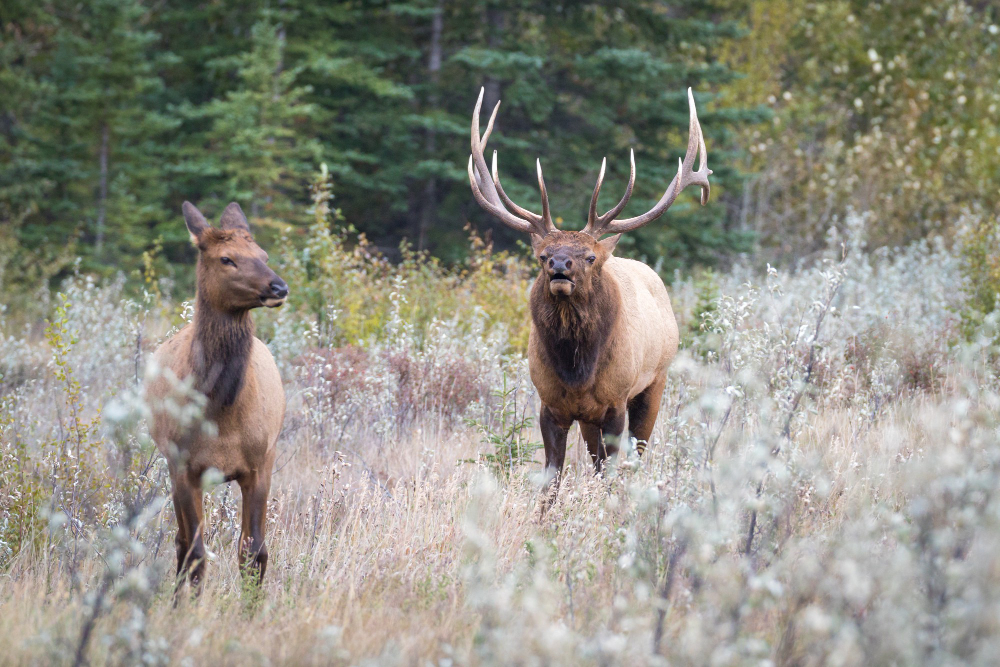How to Get a Hunting License in Ontario: Everything You Want to Know
Ontario boasts North America's richest wildlife resources, attracting thousands of hunting enthusiasts each year. However, before enjoying outdoor recreation, you must first obtain a hunting license Ontario and follow local hunting regulations.
Whether you’re an experienced hunter learning new rules or a beginner getting your hunting license in Ontario, we’re here to help.
We’ll guide you step by step so you can get your license easily. You’ll learn the main rules and start hunting safely and legally in Ontario. Ready? Let's get started!
Who Qualifies for a Hunting License?
To get a hunting license, you usually need to meet age requirements, finish safety training, and follow local or national rules. Different identities (resident/non-resident) and age groups have different requirements.
Ontario Residents
As an Ontario resident, to hunt legally, you must:
Be at least 16 years old (15-year-olds require written parental consent to apply).
Complete the Hunter Education Program. Participate in and pass the Ontario Hunter Education Program or equivalent training recognized by Ontario, and upload the relevant certification to your "Fish and Wildlife Licensing Service Account".
Comply with firearm regulations. If hunting with firearms, you must follow all federal firearms laws and carry legal documentation with you.
Hold a valid Outdoors Card.
Apply for the corresponding hunting licenses and tags for the species you plan to hunt. During the application process, you can choose the Ontario hunting license online method for more convenience and speed, especially suitable for younger generation hunters.
Non-Resident Applicants
For non-Ontario residents, the regulations are more stringent, including residents of other Canadian provinces and international visitors:
Age requirement: Must be at least 16 years old to hunt in Ontario.
Qualification proof: Must submit original or certified copies of acceptable hunting accreditation.
licenses and tags: Like residents, non-residents must also hold a valid Outdoors Card and appropriate licenses and tags to hunt target species.
Note: Proof must be sent via email to the Natural Resources Information and Support Centre (NRISC) for review before arriving in Ontario.
Hunting License Types in Ontario
Ontario’s hunting system helps protect wildlife and keep hunting safe and sustainable. Hunters need the right license for the type of animal they plan to hunt, and each license has its own rules, documents, and tags.
Small Game Hunting
The Small Game license is for hunting smaller animals found across Ontario’s forests, fields, and wetlands. It covers common species that are widely available.
You’ll need:
Valid Outdoors Card
license Summary Document
Firearms Safety Certification
Any required tags, depending on the species
Note: A tag is an official document or sticker linked to your license. It shows which species and area you’re allowed to hunt, and it must be attached to the animal after a successful hunt.
Small game includes:
Furbearers: Raccoon, fox, skunk, weasel etc.
Rodents: Squirrel, groundhog, porcupine, etc.
Lagomorphs: Rabbits and hares
Upland Game Birds: Grouse, grey partridge, ring-necked pheasant, ptarmigan, etc.
Other Species: Wolf/coyote (requires additional tag)

Big Game Hunting
The Big Game license is for hunters going after larger animals. These hunts require more preparation, stricter rules, and the right equipment.
You’ll need:
Valid Outdoors Card
license Summary Document
Firearms Possession and Acquisition License
Tags for each big game species
Big game includes:
White-tailed Deer: Ontario’s most hunted big game, with separate bow and gun seasons. Each needs its own tag.
Moose: Very large animals, often over 600 kg. Moose licenses are limited and given through a draw system.
Black Bear: Found mainly in northern areas; hunting has special rules for baiting and safety.
Elk (Wapiti): Only hunted in a few regions with special draws due to small populations.

Big game hunts for moose and black bear can last several days, often requiring hunters to camp deep in the wilderness. During these trips, it’s important to bring not only firearms and safety gear but also a reliable power source.
When comparing a portable power station vs power bank, the power station is the better choice for extended stays. It can run lights, cooking gear, and small appliances, helping you stay safe, comfortable, and well-prepared throughout your hunt.
For example, the EcoFlow RIVER 3 Plus Portable Power Station can power smart devices like hunting cameras simultaneously, making it ideal for long outdoor hunting trips.
Hunting License Fees
Here are the main hunting license fees for Ontario residents (all fees are in Canadian dollars and subject to 13% HST, unless otherwise noted):
license/Service Item | Fee (CAD) | Notes |
Outdoors Card (3-year validity) | $8.57 | Required for all licenses |
Small Game license (1 year) | $22.76 | Common rabbits, squirrels, grouse, etc. |
Small Game license (3 years) | $68.28 | More cost-effective long-term |
Elk Draw Application | $15.00 | Must win draw before buying tag |
Elk license | $35.29 | Must be used with tag |
Elk Calf Tag | $30.00 | Calf only |
Elk Cow/Calf Tag | $150.00 | Cow or calf |
Elk Bull Tag | $200.00 | Bull only |
Moose Draw Application | $15.00 | Similar process to elk |
Moose license + Tag | $48.25 | Full authorization included |
White-tailed Deer license + Tag | $43.86 | Most common big game |
Farmer Deer license + Tag | $25.14 | Limited to farmer status |
Deer Draw Application | Free | Required for specific areas |
Wolf/Coyote Tag | $10.05 | Some management units restricted |
Wild Turkey Tag (Spring) | $26.33 | Purchase separately each season |
Hunting Dog license | $12.21 | Must hold if using hunting dogs |
How to Get Hunting License Ontario: Step-by-Step
Getting a hunting license in Ontario is a clear and manageable process. Follow these steps to get everything in place before heading out.
Step 1. Complete the Hunter Education Course
If you're applying for the first time, you must complete the Ontario Hunter Education Program. This course covers hunting safety, conservation, and regulations. After successful completion, you will receive a Hunter Education Examiner Report, a required document for obtaining an Ontario hunting license.
Step 2. Obtain an Outdoors Card
Everyone who wishes to hunt in Ontario needs a valid Outdoors Card. The Ontario Outdoors Card costs $8.57 CAD (plus tax) and is valid for three calendar years.
Step 3. Select and Purchase Appropriate Hunting licenses and Tags
Choose the license and tags based on the animal you plan to hunt. You can buy hunting licenses and tags in several ways:
Online: Through the Fish and Wildlife Licensing Service
In person: At license issuers
At ServiceOntario: Participating ServiceOntario locations
If you’re a new hunter, your hunter accreditation must first be registered with the Fish and Wildlife Licensing Service before you can buy hunting products. This can only be done at participating ServiceOntario offices.
Once your accreditation is registered, residents can buy hunting products through the Online hunting license Ontario platform, by phone, at license issuers, or at ServiceOntario locations.
Step 4. Print Tags
After buying your tags, you can print them at home, at license issuers, or at ServiceOntario locations. You can print them right after purchase or once the draw results are released.
If you need a replacement tag, the licensing service will keep track of it. You can get a new one from a license issuer or a ServiceOntario location.
Rules and Restrictions You Must Follow
When hunting in Ontario, hunters must comply with multiple rules and restrictions to ensure safe and legal hunting activities.
Shooting is prohibited on public roads or from within vehicles.
Firearms must be unloaded and locked when stored in vehicles.
Night hunting is prohibited and can only be conducted between half an hour before sunrise and half an hour after sunset. During limited hunting time, a portable power station can keep equipment charged in remote areas without worrying about equipment running out of power.
Firearms must be unloaded and secured at night.
Hunters must wear "hunter orange" clothing.
Illegal killing or hunting of endangered species is prohibited; hunting must occur during legal seasons.
Using another person's tag or seal is prohibited; you must carry your license, Outdoors Card, and valid tag at all times.
Seals must be properly used, affixed, and cut.
Trespassing on private land is prohibited; permission must be obtained before entering.
You may only hunt in the WMU specified on your validation tag.
Conclusion
Hunting in Ontario offers a unique way to connect with nature, but it also requires care and respect for local rules. Before heading out, make sure your Ontario hunting license is valid, your gear follows regulations, and your safety training is current.
Good preparation is essential, from getting the right license and tags to packing food, equipment, and power for longer trips.
With EcoFlow’s reliable power solutions, you can stay safe, comfortable, and fully powered anywhere you hunt in Ontario.
FAQs
How long is the Ontario hunter course?
The Ontario Hunter Education Program usually takes about 10 hours to complete, combining classroom learning with hands-on training.
The course covers hunting ethics, safety, wildlife identification, hunting methods, and local regulations. It can be completed over a few days or spread out across several weeks, depending on the schedule.
At the end, you’ll take both a written and practical exam. Once you pass, you’ll receive a Hunter Education Examiner’s Report, which you’ll need to apply for your Ontario hunting license.
Can I take the Ontario hunting course online?
Yes, you can take the Ontario Hunter Education Course online. The online option lets you study the material at your own pace and complete the lessons over several days or weeks.
However, you’ll still need to attend an in-person session for the practical training and final exam. This step ensures that every new hunter learns not just the theory, but also the hands-on skills needed to handle firearms safely and navigate the outdoors responsibly.
Can I hunt on my own property in Ontario?
Yes, you can hunt on your own property in Ontario, but there are specific rules and regulations you must follow. You need to have the appropriate hunting licenses for the species you're hunting and comply with Ontario's hunting seasons and bag limits. Additionally, if you're hunting on private land, you must ensure that you have permission from any other landowners if the property is near boundaries or if public access is involved. It's also important to follow local municipal laws regarding firearms and hunting activities, as some regions may have additional restrictions. Always check the Ontario Ministry of Natural Resources and Forestry (MNRF) website for the latest rules and requirements.